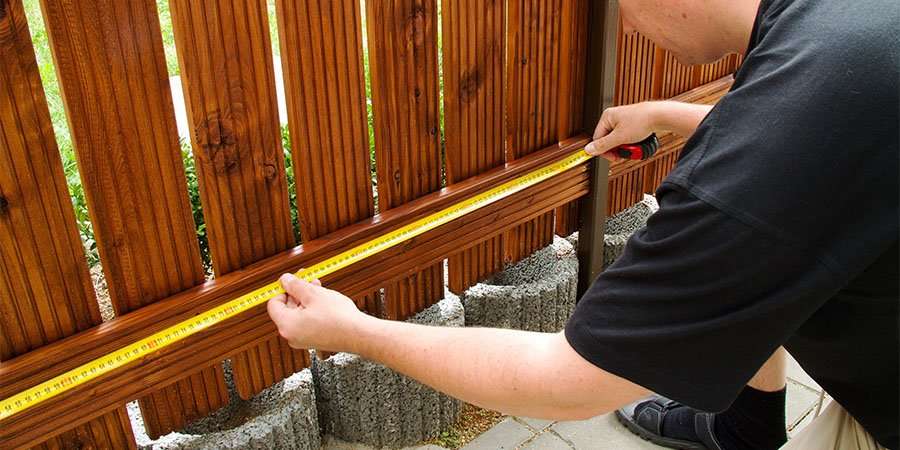All Categories
Featured

When preparing to set up a fencing around your residential or commercial property, one of the initial steps is recognizing the permitting needs in your area. Below's what you need to recognize regarding obtaining the required permits for your fence installation.
Why Do You Need a Permit for a Fence? A license is frequently required for fence installations to make certain conformity with neighborhood building codes, zoning regulations, and safety laws. Permitting aids neighborhood authorities maintain uniformity in neighborhood aesthetics, safety, and environmental considerations. It additionally makes sure that the fencing does not conflict with utility lines or public spaces, which it sticks to elevation and border restrictions.

Common Licenses Required for Fencing Installation. Building Authorization. Most areas require a structure authorization for fencing installation, specifically if the fence goes beyond a specific height (normally over 6 feet) or is made from non-standard products. This authorization ensures that your fencing adheres to neighborhood structure codes. In some areas, the building division will certainly inspect the site to make sure that the fence meets safety and security and structural standards.
Zoning Permit. Zoning licenses are designed to make sure that your fencing sticks to regional zoning regulations, consisting of obstacles from property lines, easements, and rights-of-way. Zoning regulations differ from city to city, and sometimes, your fence might need to be set back a particular number of feet from the sidewalk or roadway. If your fence is in a historic district or various other specifically marked areas., a zoning license might additionally be needed.

Fencing Permit. In some areas, a certain "fence authorization" might be required. This is generally required when constructing a fencing for properties. The neighborhood federal government might specify the elevation, product, and design of the fencing to ensure it blends well with the bordering area. As an example, some cities limit chain-link surround front backyards or have particular guidelines for privacy fencings.
HOA Approval. If your home is part of a property owners organization (HOA), you might need authorization before mounting a fence. HOA standards commonly consist of details rules regarding the type, height, shade, and products for fences to keep the neighborhood's aesthetic appeals. HOA regulations can be stricter than city codes, so always check their guidelines before progressing.
Easement or Energy Authorizations. If your fence will certainly be near or throughout an easement (such as an energy easement), you may need to get authorization from the energy company or various other entities that regulate the land. This is particularly important if you plan to mine fencing messages, as it ensures you will not harm below ground utilities like power, gas, or water lines.
How to Discover What Allows Are Called for. The very best method to identify which licenses are necessary for your fence setup is to contact your regional structure department or metropolitan office. They can give you with details details concerning requirements in your location. Here are a few actions you can require to find out:
Inspect the City or Region Internet site: Several city governments give information concerning fencing setup allows online. Try to find structure or zoning areas on their site. Call or Browse Through City Government Workplaces: If the information is not easily offered online, calling or seeing the regional workplace face to face can clarify what's required. Get In Touch With an Expert Contractor: If you're overloaded or not sure by the process, a local specialist or fence setup firm can aid in navigating the permitting procedure, as they're acquainted with neighborhood guidelines. What Takes place If You Do Not Get an Authorization? Failing to get the essential authorizations can cause a range of repercussions. In numerous locations, you can face penalties, and your fence may be bought to be gotten rid of. Furthermore, if you sell your home in the future, the lack of proper licenses can be a warning for purchasers and impact the sale. Permitting makes certain that your fencing is compliant and assists prevent future issues.
Conclusion. Before setting up a fence around your building, it's vital to check whether an authorization is needed in your area. Structure permits, zoning permits, HOA approval, and utility consents might all play a function in your fencing installment process. Putting in the time to research study and get the required permits will certainly not just ensure that you're following local guidelines, but likewise assist shield your financial investment and keep the integrity of your property.
Latest Posts
Check Out Outstanding Car Repair Care from Montclare Auto Repair – Keep Your Car Running Smoothly
Published en
1 min read
Discover the Best Auto Repair Coupons in Montclare, Chicago
Published en
1 min read
Discover WyHy FCU – The Key to Superior Financial Services in Wyoming
Published en
1 min read
More
Latest Posts
Check Out Outstanding Car Repair Care from Montclare Auto Repair – Keep Your Car Running Smoothly
Published May 24, 25
1 min read
Discover the Best Auto Repair Coupons in Montclare, Chicago
Published May 23, 25
1 min read
Discover WyHy FCU – The Key to Superior Financial Services in Wyoming
Published May 22, 25
1 min read